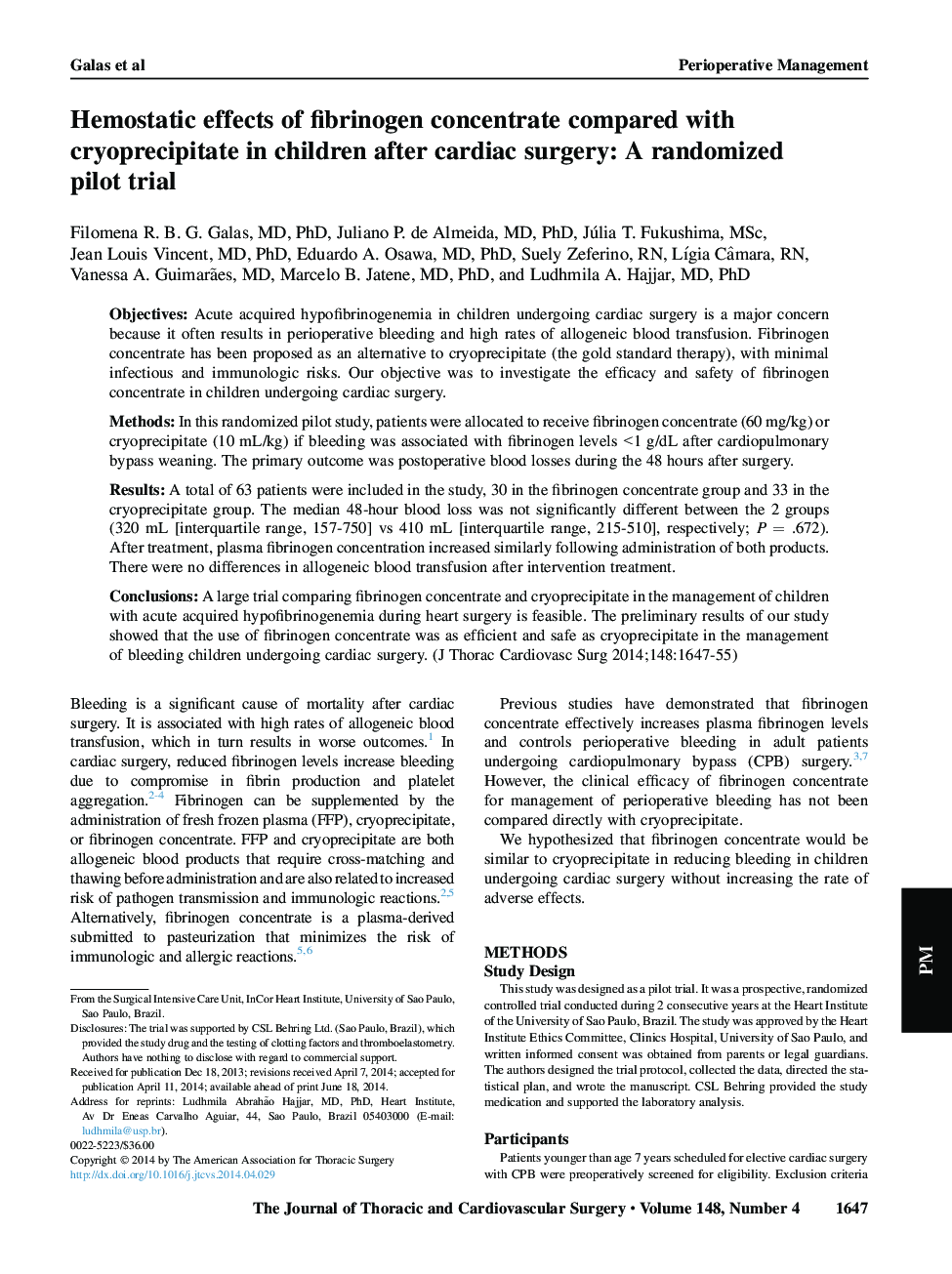| Article ID | Journal | Published Year | Pages | File Type |
|---|---|---|---|---|
| 2980432 | The Journal of Thoracic and Cardiovascular Surgery | 2014 | 9 Pages |
ObjectivesAcute acquired hypofibrinogenemia in children undergoing cardiac surgery is a major concern because it often results in perioperative bleeding and high rates of allogeneic blood transfusion. Fibrinogen concentrate has been proposed as an alternative to cryoprecipitate (the gold standard therapy), with minimal infectious and immunologic risks. Our objective was to investigate the efficacy and safety of fibrinogen concentrate in children undergoing cardiac surgery.MethodsIn this randomized pilot study, patients were allocated to receive fibrinogen concentrate (60 mg/kg) or cryoprecipitate (10 mL/kg) if bleeding was associated with fibrinogen levels <1 g/dL after cardiopulmonary bypass weaning. The primary outcome was postoperative blood losses during the 48 hours after surgery.ResultsA total of 63 patients were included in the study, 30 in the fibrinogen concentrate group and 33 in the cryoprecipitate group. The median 48-hour blood loss was not significantly different between the 2 groups (320 mL [interquartile range, 157-750] vs 410 mL [interquartile range, 215-510], respectively; P = .672). After treatment, plasma fibrinogen concentration increased similarly following administration of both products. There were no differences in allogeneic blood transfusion after intervention treatment.ConclusionsA large trial comparing fibrinogen concentrate and cryoprecipitate in the management of children with acute acquired hypofibrinogenemia during heart surgery is feasible. The preliminary results of our study showed that the use of fibrinogen concentrate was as efficient and safe as cryoprecipitate in the management of bleeding children undergoing cardiac surgery.
